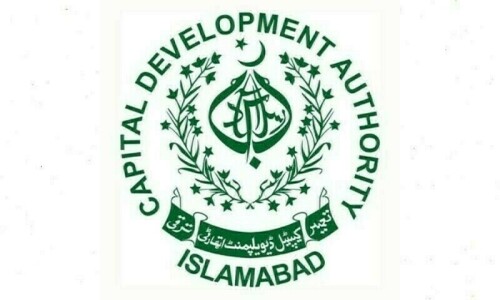ISLAMABAD: The Islamabad High Court (IHC) on Tuesday sought comments from the federal government on the suspension of mobile phone service during special occasions.
Justice Athar Minallah issued notice to the attorney general of Pakistan to get the stance of the federal government on the frequent suspension of the cellular service in the twin cities of Islamabad and Rawalpindi.
Former interior minister Rehman Malik introduced the suspension of the cellular service on important days as a part of counterterrorism strategy.
His successor Chaudhry Nisar Ali Khan continued the policy due to which the residents of the twin cities face lots of hardship.
Several petitioners challenged the move in the IHC in April this year.
Justice Minallah directed the attorney general to appear before the court and apprise it of the government policy after a fortnight.
During a hearing on September 26, the counsel for the Pakistan Telecommunication Authority (PTA), Munawwar Iqbal Duggal, had informed the court that the PTA only complied with the directives of the federal government to suspend the service.
According to a notification issued by the federal government on December 26, 2009, the PTA is required to close down the mobile phone service within six hours of receiving a request from either the ISI, law enforcement agencies or the army.
But the petitioners through their counsel adopted before the court that the directive was illegal as it violated Section 54 of the PTA Act which stated that the mobile service can only be suspended during a proclaimed emergency.
Secondly, the counsel maintained that the direction was issued by the prime minister without being discussed or endorsed by the federal cabinet.
The petitions said more than 70 million Pakistanis used mobile phones and almost 10 million of them relied on it for money transfers.
The mobile phone service remained suspended during protest sit-ins, Muharram, Rabiul Awal, important funerals and chehlum and sometimes even during the Friday sermons of a Lal Masjid cleric.
The petitions complained that the suspension of mobile phone service adversely affected their ability to communicate with their families and others.
They said the suspension of the service was unconstitutional because it violated the fundamental right to telecommunication.
The petitions cited the PTA, the secretary Ministry of Information Technology and Telecommunication and the chief executive officers of three private telecom service providers as respondents.
The petitioners requested the court to declare the suspension of mobile service illegal.
Published in Dawn November 16th, 2016














































Dear visitor, the comments section is undergoing an overhaul and will return soon.